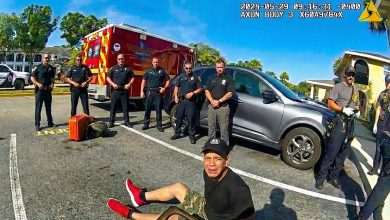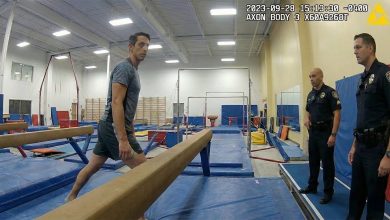ATF Working To Secure Gun Shops From Thieves

Having credibility means being fair and calling things in both directions as you see them. It is clear by now that I am not averse to calling out the Bureau of Alcohol, Tobacco, Firearms and Explosives (ATF) when it comes to anything I see as a violation of the Second Amendment and our Constitutional rights in general. Many Americans make their living and support their families through the work they do at the ATF. While I know securing gun stores from theft is part of the agency’s agenda to keep unaccounted-for firearms off the streets, robberies can be a real hassle for gun store owners and employees who work hard to take care of their families and spread the American tradition of freedom and self-preservation to their communities. That being said, my gift to the ATF this holiday season is pointing out something they are actually helping with.
In North Carolina alone, 474 firearms have gone missing this year, stolen from Federal Firearms Licensees (FFLs), up from 259 in 2023, marking an 83% increase. With the ATF overseeing FFLs and conducting periodic inspections, WCNC Charlotte recently took a closer look at the agency’s efforts to help business owners secure their shops, employees, and livelihoods from criminals.
“We reduce violent crimes and we protect the public … We make sure to educate our FFLs on ways to best secure their premises,” said Regina Milledge-Brown, Director of Industry Operations for the agency’s Charlotte Field Division.
Unfortunately, criminals can be quite resourceful, which is one of the reasons law-abiding gun owners must protect their Second Amendment rights. As we know, the bad guys will always arm themselves one way or another, so we might as well protect our local gun shops and keep those firearms in good-guy circulation.
FFL protocol gives dealers 48 hours to report break-ins to the ATF, and agents respond by working with local law enforcement to investigate all alleged thefts and report serial numbers to the National Crime Information Center (NCIC).
“Any stolen firearm can end up in the hands of criminals; any stolen firearms can be used to impact public safety in a negative way … We see a barrage of firearms stolen, whether that be handguns, pistols, revolvers – we are seeing a lot of semi-automatic rifles that are being stolen … If those firearms do come up in a crime somewhere, we are going to see that is a stolen firearm,” according to Milledge-Brown.
In 2023, the ATF recovered more than 27,000 stolen and illegally purchased firearms in North Carolina, many of which were in the hands of prohibited individuals. Over 1,400 of them were connected to homicide or aggravated assault cases.
Even the most secure locations are vulnerable to clever thieves, keeping the ATF busy updating store owners on methods used by criminals while advising them on safeguarding techniques to avoid becoming victims.
“We have seen criminals come in through the ceiling or rooftop area of stores, we have seen criminals use stolen vehicles and ram through the front of the store to gain entry, and when they gain entry, they are in and out in seconds,” noted Milledge-Brown.
Break-ins tend to spike toward year’s end and during natural disasters. ATF reports, however, that fewer gun shops experienced robberies during recent storms in Ashville than the agency expected. FFLs, however, are still taught methods to protect employees, inventory, and records from falling victim to Mother Nature, including keeping a Disaster Preparedness Plan in place.
“That just shows the significance of what we share with our FFLs when we go out and do inspections… We are always educating them on what they can do to best protect their inventory,” said Milledge-Brown.
Gun shops are encouraged to supplement technology like alarms and security cameras with hard measures like window bars, security gates, and concrete-filled barriers to thwart criminal smash-and-grabs that use vehicles to crash into the building. The ATF also advises store owners to be mindful of non-standard points of entry, recommending obstructions to prevent access through vents and air ducts.
There you have it, ladies and gentlemen. Although security companies and local law enforcement are capable of assisting gun store owners when it comes to these matters, a centralized agency that aggregates crime data and uses it to protect Americans is an idea I can get on board with. Stop trying to legislate through “rules” punishable by the force of law. Remember your oath of office and the plain text of the document you swore to defend. Come clean with Americans, be transparent, and throw your anti-Second Amendment conspirators under the proverbial bus, and maybe we’ll stop trying to abolish the ATF. Maybe…
Read the full article here








